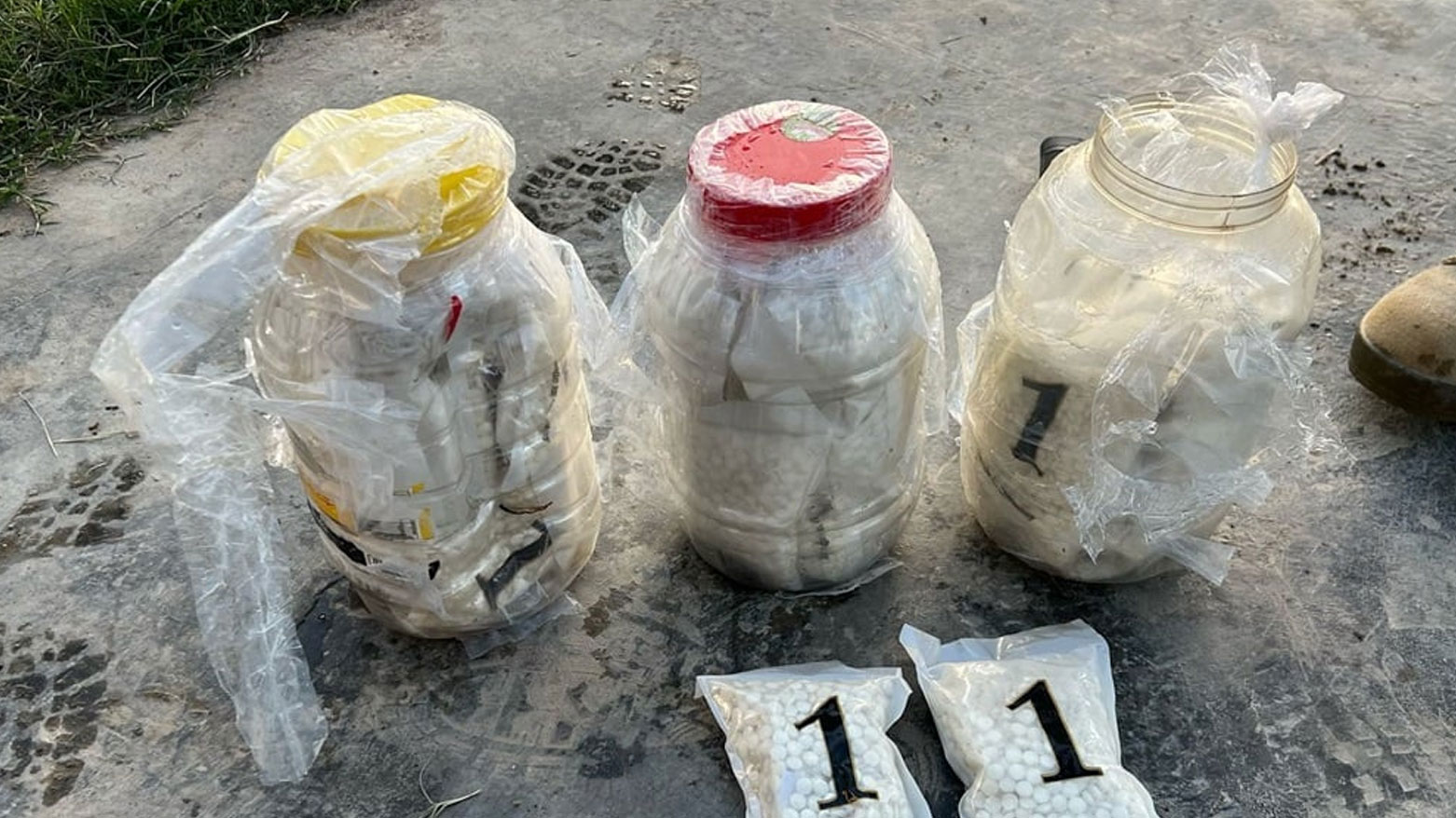Iraqi Border Forces Thwart Large-Scale Drug Smuggling Operation Near Syrian Border
According to Brig. Gen. Miri, traffickers had meticulously hidden the narcotics inside plastic containers, securely wrapped in bags, and further camouflaged with bundles of reeds to avoid detection.

Erbil (Kurdistan24) – Iraqi security forces intercepted an attempt to smuggle 30,000 Captagon pills into Iraq from Syria, the spokesperson for Iraq’s Interior Ministry, Brig. Gen. Muqdad Miri, announced on Tuesday.
The operation, conducted by the second regiment of the Border Forces Commando Brigade, took place near the Al-Baghuz area along the Iraq-Syria border. The smuggling attempt was detected through thermal cameras, which spotted suspicious movement in the area.
According to Brig. Gen. Miri, traffickers had meticulously hidden the narcotics inside plastic containers, securely wrapped in bags, and further camouflaged with bundles of reeds to avoid detection. “However, the vigilance of Iraqi border forces prevented the illicit shipment from entering the country.”
"The necessary legal measures have been taken, and the seized drugs have been handed over to the relevant authorities for further investigation," Miri stated.
Captagon, an amphetamine-like stimulant, has become a major illicit commodity in the Middle East, with trafficking routes stretching from Syria to the Gulf states. Iraq has increasingly become both a transit hub and a destination for these narcotics, prompting authorities to intensify border security measures.
Regional instability and porous borders have fueled drug smuggling networks, often linked to organized crime and militant groups. Despite intensified efforts by Iraqi security forces, Captagon smuggling and consumption have surged in recent years, turning the country into both a transit hub and a growing consumer market.
The drug, often dubbed the "poor man’s cocaine," is widely used among young Iraqis, particularly in impoverished regions where unemployment and instability have fueled substance abuse. While border authorities have increased surveillance and crackdowns, traffickers continue to exploit Iraq’s vast, poorly monitored desert frontiers, particularly along the Syrian and Iranian Borders.
Iranian-backed networks are frequently accused of facilitating drug smuggling operations, with shipments entering Iraq under the cover of legitimate trade routes. Critics argue that Iraq’s anti-narcotics strategy remains fragmented, plagued by corruption and a lack of inter-agency coordination.
Many drug dealers operate with impunity due to weak enforcement, and efforts to dismantle major trafficking rings have been largely ineffective. Without a comprehensive national policy and stronger regional cooperation, experts warn that Captagon will continue to flood Iraqi markets, posing a severe threat to public health and national security.